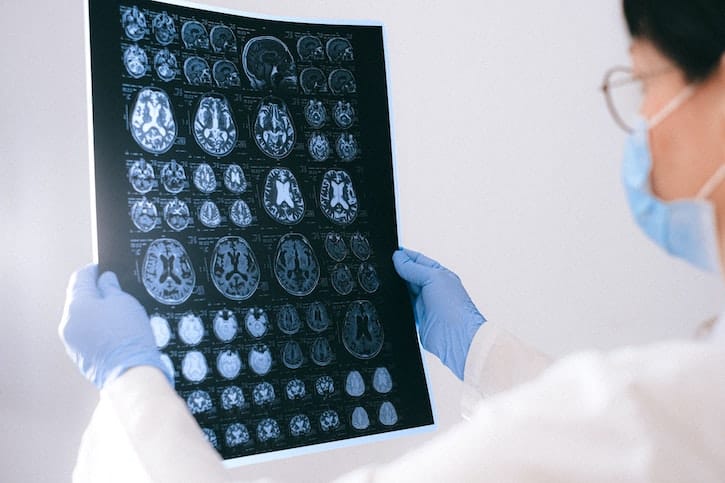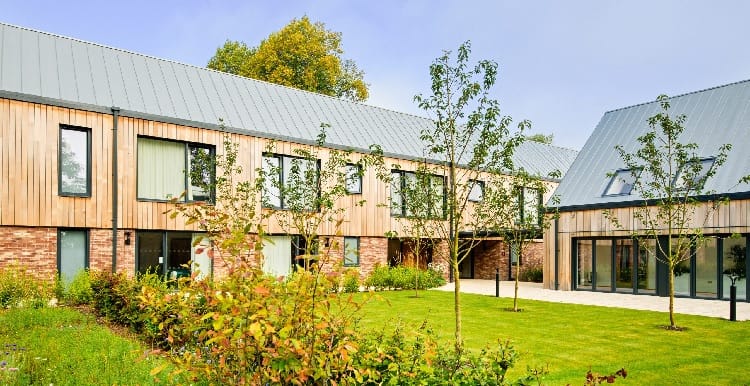We offer referrals to a variety of alcohol and drug rehab treatments for alcohol, cannabis, heroin, cocaine, crack cocaine, crystal meth, prescription drug addictions and more in Cheshire.
You can choose from a range of alcohol rehabs and alternative treatments in Cheshire.
This ranges from 7-day alcohol or drug detoxification, full 28-day alcohol rehabilitation programmes, and home alcohol or drug detoxification options.
Whatever level of addiction involvement [1] you’re suffering from, our expert team is here to help.
At Rehab 4 Addiction, our helpline staff are here to guide you through this process.
We can provide help across the county of Cheshire in Chester, Warrington, Crewe, Macclesfield, Knutsford, Northwich, Nantwich, Ellesmere Port, Congleton, Middlewich, Alderley Edge, Wilmslow, Frodsham, Runcorn, Sandbach, Tarporley, Bollington, Altrincham and Winsford.

Alcohol rehabs use evidence-based treatments in Cheshire. [2]
Treatments may include residential alcohol rehab, inpatient detoxification, home detoxification or outpatient therapy.
Alcohol and drug addiction [3] is a disease that impacts many thousands of people across the country.
People of all age, [4] sex, gender and background go to alcohol rehab.
For instance, in 2018/19, there were 358,000 admissions to hospitals in the UK where the main reason was due to drinking alcohol.
The rates in Cheshire are just as concerning, showing the full need for effective drug and alcohol rehabilitation in this county.
Rehab 4 Addiction allows you to begin a suitable drug and alcohol rehab in Cheshire for substance use disorders and alcohol use disorders.
You typically begin alcohol rehab or drug rehab treatment with a medical detox. Once detoxification is complete, therapy sessions begin.
Depending on the severity of your alcohol or drug addiction, we may recommend an alcohol rehab clinic in Cheshire.
Unlike home-based treatment, full residential rehab treatment in Cheshire means you are removed from your using environment. Temptations are thus avoided.
Alcohol & drug rehab treatment is less likely to be marred by distractions when you chose to begin evidence-based treatments at a residential Cheshire rehab clinic.
In short, drug and alcohol rehab offers you a safe environment to begin your addiction recovery journey in Cheshire. [5]
Rehab 4 Addiction facilitates a variety of treatment options across Cheshire in Warrington, Runcorn, Macclesfield, Widnes, Crewe, Chester, Nantwich, Northwich, Wilmslow, Runcorn, Blakenhall, Ellesmere Port, Cholmondeley and Congleton.
Get the help you need from a drug and alcohol rehab in Cheshire by calling us on 0800 140 4690

It’s possible to become addicted to anything from cocaine to sex and love.
The addictions treated at alcohol rehab share 6 common factors.
Daria J. Kuss describes addiction [6] as ‘mental preoccupation, escapism, mood modifying experiences, neglect of personal life, tolerance, and concealing the addictive behaviour’.
Researchers are currently exploring how we become addicted to a substance or activity, and why some of us end up at alcohol rehab.
The centre of the brain’s reward system is called the striatum. This is the region of the brain that produces feelings of reward or pleasure.
These principles are acknowledged and used when creating care plans at rehab.
Gene-Jack Wang discovered when studying imaging that the reward centre of the brain is activated when under the influence of an additive substance, [7].
This explains how and why addictive behaviours [8] are so compelling, and why rehab is so necessary to quit.
When one considers these alongside the most common genetic and environmental causes of addiction, [9] it becomes clear just how unfair the stigma of drug and alcohol dependence is.

There are many options for drug and alcohol rehab in Cheshire.
One potential option is residential rehab treatment.
This simply means you have to live at your chosen rehab in Cheshire for around three and eight weeks.
The other option is to go to outpatient alcohol rehab for alcohol or drug addiction treatment services in Cheshire.
Both are effective, and the suitable option depends on the severity of your addiction.
Below, we list several drug and alcohol rehabs in Cheshire:

If a loved one is showing signs of addictive behaviour in Cheshire [10] and is struggling with drug or alcohol dependence, they may need some encouragement.
This is particularly true if they can’t take the first step of admitting it [11].
Holding an intervention gives you the chance to air your concerns, and suggest alcohol rehab.
An intervention is when a loved one holds a meeting with the individual who is struggling with their addiction and expresses their concern, laying out what evidence-based treatments are available in Cheshire. [12]
You will want to choose a quiet area and only select people who want to help your loved one to recover.
You might always want to bring on an intervention specialist to help express things in the right way, and who can offer expert guidance about rehab options. [13]
It’s important that the individual in question knows that you are only trying to help, so be sure to plan out what you want to say before you hold the meeting.
Try and choose calm and helpful language, and let them know what rehab options are available.

Accessing a private alcohol rehab in Cheshire may seem like an expensive option. However, private rehab may have benefits over statutory drug addiction treatment services.
For instance, you can begin rehab straight away. Council-funded drug & alcohol rehab may mean you may be subject to a ‘waiting list’ before you become ‘eligible’ for rehab treatment in Cheshire, [14].
This is due to the high demand and high cost [15] of treatment.
Like all evidence-based treatment programmes, private rehabs in Cheshire offer flexible and bespoke rehabilitation programmes suitable for most situations.
Private rehabs usually offer holistic therapeutical activities such as art therapy, music therapy, drama therapy, aromatherapy, mindfulness meditation, acupuncture, outdoor therapy, equine-assisted therapy, reflexology and music therapy.
Finally, private rehabs offer a 12-month free aftercare programme at no extra cost to help you maintain your motivation to stay sober after rehab [16] at one of the most important stages of addiction recovery. [17]
There are two main alcohol and drug addiction treatment services in Cheshire: living in the alcohol rehab centre or combining day therapy with living in your usual habitat.
Private rehab clinics in Cheshire allow family members to visits you during your stay.
This means you will not be shut off from your loved ones whilst you receive rehab treatment.
However, you also benefit from being away from bad influences since you are away from your normal using environment.
To get the help you need from the best drug and alcohol rehab in Cheshire, call our team today on 0800 140 4690

The type of alcohol or drug addiction treatment programme you require depends on the severity of your addiction. [18]
The various signs of addiction [19] can even differ significantly between people, even those suffering from the same addiction.
For example, someone suffering from a type one alcohol addiction [20] is likely to avoid harm and show low novelty-seeking behaviour, whilst a type two alcoholic [21] is more likely to risk harm and engage in high novelty-seeking behaviour.
To learn more about how your addiction will be diagnosed in order to determine the appropriate treatment types you receive at drug and alcohol rehab Cheshire, call us on 0800 140 4690
An addiction expert will diagnose the severity of your SUD.
These tests will assist them in planning an effective treatment programme at alcohol rehab in Cheshire. [22]
A Cheshire residential rehab will generally be recommended for those experiencing severe SUDs [23] and have suffered from addiction for a long time, [28] whilst outpatient treatment types may be more suitable where the SUD is classified as mild-to-moderate.
Outpatient treatment typically runs over several months or even years in some cases.
It is also worth mentioning that Cheshire residential rehab must be followed up with a robust and long-term aftercare programme in order to be fully effective.
To make sure your treatment is as good as it can be, call our team on 0800 140 4690

In Cheshire, there are Government-funded health care and alcohol rehabilitation options for your addiction.
For instance, Cheshire Wirral Partnership [24] offers its help through various organisations and authorities. Another statutory organisation offering evidence-based treatment in Cheshire is the Westminster Drug Project. [25]
These alternatives to private alcohol rehab aim to help those with various addiction issues in the addiction recovery process.
In addition, there are various support groups such as Alcoholics Anonymous (AA) in Cheshire, [26] Narcotics Anonymous in Cheshire (NA), [27] Cocaine Anonymous and SMART Recovery (Self-Management and Recovery Training).
AA meetings and NA meetings offer help and are supported by donations from the attendees themselves.
You could also attend these as supplementation to your alcohol rehab treatment.
Here, you can find people with similar experiences who can give you advice in the addiction recovery process.
Family members of those affected by substance misuse can also attend Al-Anon UK or Alateen to help address the emotional turmoil caused by witnessing their loved one’s addiction.
To discuss alcohol rehab options, please call our 24-Hour Helpline: 0800 140 4690

It isn’t easy to come to the decision that you need help for addiction.
It can be hard to understand options, but you will want to make sure you choose the right drug and alcohol rehab in Cheshire.
It’s important to choose an alcohol rehab that is right for your needs. But selecting the one that is suitable for your needs is not always easy.
This is maybe the case if you have not been to rehab in Cheshire before.
One factor in choosing alcohol rehab is the location. The rehab should be away from the area where you live, but close enough for friends and family to visit.
You need to find a rehab in Cheshire that you can afford.
That’s where we can help. Also, our alcohol rehabs are regulated by the Care Quality Commission, so you can guarantee a competent level of care.
Make sure you attend the right drug and alcohol rehab Cheshire for your specific needs by calling us today on 0800 140 4690

Inpatient treatment is the most effective form of drug and alcohol rehab available in Cheshire. Below, we will explore precisely what this entails.
When you begin the alcohol or drug detox process, you may be given specific addiction medicine to help ease cravings and minimise the risk of withdrawal symptoms.
Alcohol rehab helps to ensure that your medical detox is safe and effective.
Also, you will benefit from therapy sessions to help you address underlying mental issues that make you turn to drugs or alcohol.
At alcohol rehab, you will be coupled with a case manager. This person will assist you with setting goals and working through your therapy.
You will also be scheduled for holistic therapy treatments which may include yoga, reiki and massage.
Free aftercare support will also be set up after alcohol rehab so that you will be checking in with a support person.
Outpatient therapy can also be arranged following your discharge from your treatment in Cheshire.
We offer access to a wide range of drug and alcohol rehabilitation services in Cheshire [28] and in other locations.
All of the alcohol rehabs are equipped with basic services, such as Wi-Fi, kitchens, toilets and libraries etc.
From medical devices to therapeutic support, you benefit from a consistently high level of service.
Begin your journey towards addiction recovery at an inpatient drug and alcohol rehab in Cheshire today by calling our team on 0800 140 4690

During alcohol rehab in Cheshire, you spend time with therapists and undergo specialised psychiatric treatment to address the mental aspect of addiction as well as a range of psychiatric disorders often associated with addiction.
Therapists are there to help once you start aftercare sessions.
Staying at drug and alcohol rehab Cheshire means you benefit from the below ‘talking therapies’ which aim to help you understand the survival strategies that gave rise to your addiction.
This can help you develop alternative coping mechanisms and strategies:
Therapies in Cheshire help break the cycle of addiction. This helps you to cope with life’s problems and reduces the odds of you turning to drug or alcohol misuse.
At alcohol rehab, you will be asked to take part in therapy sessions throughout the day. Therapy helps you to live life on your own terms.
The aim of therapy is to help you cope with your issues in healthier ways. You will also gain the coping skills to help you with this aim.
Addiction therapies at alcohol rehab are made up of group and one-to-one sessions.
Group psychotherapy sessions give you the skills to learn from others’ past experiences and is one of the most widely used psychiatric treatments during addiction.
One-to-one therapy at alcohol rehab lets you talk about your own drug and alcohol problems with a therapist in complete privacy.
To experience any of these excellent treatments at a drug and alcohol rehab in Cheshire, call our team today on 0800 140 4690

Drug and alcohol rehab varies in length because it is designed around each person’s needs.
Every person struggling with drug and alcohol abuse will have their own unique issues to overcome, so the length of treatment can vary significantly.
Whilst this can mean a significant difference in time spent at alcohol rehab in Cheshire, most people will spend around 28 days in residential alcohol rehab.
This is the firm basis for the six months to five years of addiction recovery [29] that many experts consider to be the length of time it takes for an addiction to be reliably managed.
When you begin your telephone assessment prior to alcohol rehab in Cheshire, our admissions coordinator will ask you a series of questions.
These questions are about the nature of your addiction. The answers you give help us to find a suitable alcohol rehab programme length.
For example, a typical alcohol detoxification at alcohol rehab takes no longer than five to seven days to complete. [30]
Opiate addiction meanwhile is far more intense, and this particular drug detox may take between 14 and 21 days to complete.
This will often include the use of a variety of addiction medicine, particularly substances like Librium (a benzodiazepine also known as Chlordiazepoxide).
Rehabs can also prescribe Acamprosate [31], Naltrexone [32], and various anti-anxiety medications such as Paroxetine [38] and their alternatives. [33]
You will be seen by a consultant psychotherapist as soon as you enter the alcohol rehabilitation facility.
The psychotherapist is need to prescribe you the alcohol withdrawal or drug withdrawal medications you will require.
Any medical detox undertaken at an alcohol rehabilitation facility in Cheshire will follow strict NICE Guidelines. [34]
Once alcohol or drug detox is over, you will begin therapy. Therapy aims to treat the mental aspect [35] of addiction.
Every alcohol rehab clinic we work with in Cheshire offers effective therapies that help to improve your mental well-being, giving you the best chance of avoiding relapse after treatment ends.
These evidence-based treatments at alcohol rehab include things like cognitive behavioural therapy, which has an extremely high success rate [36] with very low odds of relapse [37], although some individuals will find it naturally less effective. [38]
Poor mental health is a factor that may lead to early relapse. Tackling poor mental health is important for your long-term sobriety. [39]
For a more specific answer to how long your time at drug and alcohol rehab in Cheshire will take, call our team on 0800 140 4690

Outpatient alcohol rehab is almost always less costly than residential rehab treatment in Cheshire.
Also, the cost of rehab will vary depending upon location.
Some alcohol rehabs in Cheshire are considered ‘luxury’ and will charge more money to gain access to their services.
The quality of treatment in Cheshire is fairly uniform across any qualified alcohol rehab clinic. Thus, it’s easy to sacrifice non-essentials in order to begin alcohol rehab you can afford.
The length of treatment also influences the cost of alcohol rehab in Cheshire. If you wish to spend 2-3 months inside an alcohol rehab clinic, this will cost more than a 7-day detoxification.
For most people, 28-days is the most suitable amount of time to spend in alcohol rehab.
The average cost of alcohol rehab is £1,000 and £1,500 per week. This includes the cost of therapies, alcohol and drug detox services, boarding, and meals.
Luxury alcohol rehab includes extras not offered at standard alcohol rehabs. The cost can be between £10,000 and £15,000 per week.
Whatever alcohol rehab in Cheshire you end up selecting, the cost should be seen as an investment in your long-term mental health.
For a personalised answer to how much your time at drug and alcohol rehab in Cheshire will cost, talk to our team today on 0800 140 4690

Not everyone can afford to pay for alcohol rehab in Cheshire privately.
The major downside to publicly funded addiction treatment is typically the waiting list and administrative hurdles [40] you face when you go down this road.
This is one of the major reasons why private alcohol rehab addiction treatment services have grown in popularity over the last decade.
Below, we list organisations offering publicly funded addiction treatment services in Cheshire.
You will usually be expected to undergo outpatient alcohol rehab treatment, as NHS-funded residential treatment can be difficult to access.
Many people give up on the NHS rehab process and later conclude it’s necessary to pay for treatment out-of-pocket.
But if you cannot afford to pay for addiction treatment privately, then we recommend you get in touch with one of the following organisations:
Address: Marsden House, Brookdale Place, Chester, CH1 3DY
Telephone: 0124 439 3200
Website: https://www.cwp.nhs.uk/our-services/cheshire-west-chester/camhs-0-18-cheshire-west
Address: 38 Witton St, Northwich CW9 5AG
Telephone: 01244 662 402
Website: https://www.betel.uk/
Address: 15 Delamere St, Crewe CW1 2HR
Telephone: 0127 065 6301
Address: Aqua House, 51 Boughton, Chester CH3 5AF
Telephone: 0300 303 4549
Website: https://www.wdp.org.uk/find-us/cheshire-west-and-chester/
Address: The old Council House, Church Rd, Northwich CW9 5PD
Telephone: 01606 330 033
Website: https://www.turning-point.co.uk/
Address: Aqua House, 51 Boughton, Chester CH3 5AF
Telephone: 01928 240 406
Website: https://www.wearewithyou.org.uk/
These alternatives to rehab are free to access.
Your local NHS Foundation Trust will also be able to provide support.
It may also be beneficial to contact organisations such as Mind UK, the Samaritans or Rethink Mental Illness. All of these organisations offer free information and advice.
You can also access mental health services via the NHS [41], although a GP’s referral is often necessary. Even if you attend rehab, NHS mental health resources are a good additional treatment.
Other organisations you can reach out to include the Edward Myers Unit, [42] Change Grow Live [43] and We Are With You. [44]

There are a wide range of different factors to take into consideration when choosing the right drug and alcohol rehab in Cheshire.
Addiction often leads to a range of health problems. These problems may be mental or physical.
When you stop using drugs and alcohol, you improve every aspect of your health.
As such, alcohol rehab clinics in Cheshire will employ a selection of psychiatric treatments specifically to improve your mental health and tackle any co-occurring mental disorders.
We aim to treat common mental problems and psychiatric disorders [45] associated with addiction such as:
The suggested duration of your alcohol rehab or drug rehab would depend on many factors.
These typically include your health conditions, fitness level, age, gender, and severity of the addiction.
In most cases, you may be advised to spend at least 4 weeks in one of our alcohol rehab centres in Cheshire. This duration is sufficient to help your body detoxification and recover.
Most alcohol rehabs are located in desirable areas like the city centre, beachfront regions, or suburbs.
Thus, you can choose an ideal option that is near your neighbourhood or in a place that meets your personal preferences.
Since each alcohol rehab centre has its own pros and cons, make sure to consult our staff before making a decision.
The answer will depend on your chosen services and alcohol rehabs in Cheshire. Some insurance plans are accepted, while others are not.
This depends on many factors and conditions.
It’s true that some fund alcohol rehab via insurance, so it’s always worth making enquiries just in case you are covered.
When you are ready for alcohol rehab, you only really need to bring along basic items. This includes clothing, ID, medications, and personal hygiene products.
There is no need to bring along expensive iPads and laptops.
These items may only distract you when you begin your alcohol rehab in Cheshire. Instead, bring a book and photos of loved ones.
Once you have chosen a alcohol rehab, our team will run through all the essential items that are required for that alcohol rehab in Cheshire.
Make sure you’re ready for drug and alcohol rehab in Cheshire with our help by calling us on 0800 140 4690

Try to organise work and family commitments before rehab begins.
This allows you to begin alcohol rehab treatment in Cheshire [48] without constant worry. Inpatient rehab usually takes around 28 days to complete.
Thus, make sure you can re-arrange these commitments for this time period.
This may mean looking for someone to care for your children while you go to alcohol rehab if you have them. You should let your work know that you will need to take time off as holiday.
This is important only if your employer is not aware of your situation.
Let us help you facilitate your addiction recovery at a drug and alcohol rehab in Cheshire by calling us on 0800 140 4690

It can seem like a challenge going to alcohol rehab. This may be one of the most difficult periods for you.
You must remember that you will not be alone. Other addiction patients will be there alongside you. Many of these people may become true lifelong friends.
Therapy sessions at alcohol rehab may also involve loved ones. This helps you to rebuild broken relationships.
Loneliness can be a trigger for relapse. [49] Relationships can be a form of support.
Once you have left alcohol rehab, there will be a support network ready for you when you need it.
Alcohol rehab in Cheshire is all about nurturing healthy relationships. This could be with yourself as well as with your family, friends and other addiction patients.

Going to alcohol rehab helps you build strength in your addiction recovery.
However, going to alcohol rehab is not the only way to stop drinking. [50] You can attempt to stop yourself. [51]
This is inadvisable if you begin to suffer physical withdrawal symptoms, since these symptoms are potentially deadline, and may require immediate hospitalisation.
If you feel you may stop drinking without the medical attention you would receive at rehab, it’s important to have clear goals.
The first step is to be aware and to want to make a change.
With small steps, you can achieve a healthier and alcohol-free routine.
One alternative to alcohol rehab is to join a 12-step group such as Alcoholics Anonymous.
You can find these groups in Cheshire by clicking here. [52]
Get the help you need, whether at a drug and alcohol rehab in Cheshire or elsewhere, with our assistance by calling us on 0800 140 4690

Rehabs in Cheshire are able to treat a wide range of addictions. Below, we list each drug type you may begin alcohol rehab treatment for in Cheshire.
Alcohol rehab treatment for physically addictive drugs begins with a detoxification.
You may be given medications to help ease withdrawal while at alcohol rehab. If you believe a you or a loved one are experiencing delirium tremens (DTs), then call 999.
DT is a medical emergency and can be life-threatening. [53]
Alcohol Rehabs are also set up to treat co-occurring mental health issues, [54] known as a dual diagnosis.
The different types of substance addictions rehab can treat [55] include:
Alcoholism is a common addiction. In fact, it is likely that alcoholism is the most common form of addiction in the UK.
We help you select alcohol rehabs offering suitable treatment for alcohol abuse.
Alcohol is a physically addictive substance, and alcohol abuse can come in many forms but is often characterised by excessive alcohol consumption [56] and an inability to stop. [57]
This can even result in alcohol poisoning, [58] which can be extremely dangerous.
This is why alcohol rehab for alcohol addiction is so necessary.
You will be given medications to help stop dangerous withdrawals.

Addiction is often painful, and cravings and withdrawals can often be too much to take. [59]
You can prepare for alcohol rehab by learning common withdrawal signs.
These signs and symptoms may include nausea, diarrhoea, muscle aches, sweating, insomnia, and seizures amongst others.
After your admission into alcohol rehab, you may be given medications to help you through this painful time.
For alcohol use disorders, you may be given anti-craving drugs.
Getting better is not an easy process. The alcohol rehab process deals with many emotions and comfort.
It takes strength and sheer grit. In the end, it is worth it to come out on the other side stronger.
Please call our 24-hour helpline on 0800 140 4690

Sometimes, withdrawals can be painful, even deadly. During your alcohol rehab, medical staff are on hand to help you during this time.
Medicated drugs may be given to you by a doctor.
These drugs are used for the treatment of drug and alcohol abuse at Cheshire alcohol rehab clinics.
Each drug is used for a specific type of addiction. Click here for more information.
Get the help you need from a drug and alcohol rehab facility in Cheshire today by calling us on 0800 140 4690

Before you leave drug and alcohol rehab in Cheshire, a full assessment is carried out. This makes sure you do not return home before you are ready to do so.
An aftercare plan will help you to avoid relapse once you are back home.
Relapse prevention is rightly a major goal of modern alcohol rehabilitation programmes
We believe your treatment in Cheshire will be the first step towards your long-term goals – keeping your disease managed for the rest of your life. [60]
Your alcohol rehab can help you join local support groups in order to maintain a good level of structured peer support in your recovery journey.
Alcohol rehab support groups can be essential when cravings and other addiction triggers seem overwhelming
For example, if drinking at night [61] is too tempting, then attending a night alcohol rehabilitation support group can be vital.
Accessing free aftercare means that you can benefit from the treatment you receive at your chosen alcohol rehab facility on a long-term basis.
Some will find it hard to adjust to life outside alcohol rehab. Aftercare helps to make the return to life outside an alcohol rehab facility easier.
You benefit from in-person aftercare therapy and telephone support.
Please call our 24-hour helpline on 0800 140 4690

The National Drug Treatment Monitoring System (NDTMS) releases annual statistics [62] reporting on the effectiveness of addiction rehabilitation for a variety of drugs.
Success rates vary between alcohol & drug addictions, specifically in relation to the specific substances you are addicted to.
“Success” is defined as successfully completing alcohol rehab treatment.
The success rate for completing an outpatient treatment & alcohol rehabilitation programme is about 30% for those addicted to opioids such as heroin.
The average time in treatment for opiate addiction was nearly three years.
Alcohol treatment is has a higher success rate, with around 60% completing treatment successfully.
Another study [63] found that early alcohol rehabilitation reduces the risk of hospital readmission, alcohol relapse, and premature death. [64]
This study recommended alcohol rehabilitation should be considered for those admitted to hospital with alcohol-related illnesses [65] such as:
With the right support, many of these conditions can be treated and even overcome. [74]
Get the best possible help from a drug and alcohol rehab in Cheshire by calling us today on 0800 140 4690

To find out how to start treatment in Cheshire or access a drug and alcohol rehab in Cheshire, contact us now.
You can get in touch with us via phone, or by filling out a website contact form. Our team are made up of experienced addiction workers.
Many of our team members are living their lives ‘in addiction recovery’. You can contact us today on 0800 140 4690.
Rehab 4 Addiction offers access to a variety of drug and alcohol rehab clinics in North West England, including Lancashire, Cumbria, Merseyside, Manchester, Liverpool, and Cheshire (Cheshire East & Cheshire West).
This article was written by Boris Mackey. You can connect with Boris online at LinkedIn or X.com.
[1]https://www.edu.gov.mb.ca/k12/cur/physhlth/frame_found_gr11/rm/module_e_lesson_2.pdf
[3] https://nida.nih.gov/publications/drugs-brains-behavior-science-addiction/drug-misuse-addiction
[4] https://www.niaaa.nih.gov/alcohols-effects-health/alcohol-topics/older-adults
[5] https://nida.nih.gov/research-topics/recovery
[6] https://www.mdpi.com/1660-4601/8/9/3528/htm?hc_location=uf
[7] https://www.jci.org/articles/view/18533
[8] https://www.painscale.com/article/the-4-c-s-of-addiction
[9] https://medlineplus.gov/ency/article/001522.htm
[10] https://www.ncbi.nlm.nih.gov/pmc/articles/PMC3654310/
[11] https://www.mountsinai.org/health-library/selfcare-instructions/deciding-to-quit-drinking-alcohol
[13]https://www.ahrq.gov/prevention/guidelines/tobacco/5steps.html
[14] https://www.ncbi.nlm.nih.gov/pmc/articles/PMC6760428
[15] https://rivierarecovery.com/the-wall-stage-of-recovery/
[16] https://www.ncbi.nlm.nih.gov/pmc/articles/PMC3767415/
[19] https://www.ncbi.nlm.nih.gov/pmc/articles/PMC6876531/
[20] https://www.addictionpolicy.org/post/dsm-5-facts-and-figures
[21] https://ps.psychiatryonline.org/doi/10.1176/ps.2007.58.7.949
[22] https://www.niaaa.nih.gov/alcohol-health/overview-alcohol-consumption/moderate-binge-drinking
[24] https://www.wdp.org.uk/find-us/cheshire-west-and-chester
[25] https://www.alcoholics-anonymous.org.uk/AA-Meetings/Find-a-Meeting/cheshire
[26] https://meetings.ukna.org/meeting/Cheshire
[27] https://www.ncbi.nlm.nih.gov/books/NBK385382/
[28] https://www.racnj.com/the-five-stages-of-addiction-recovery/
[29] https://www.ncbi.nlm.nih.gov/pmc/articles/PMC4085800/
[30] https://effectivehealthcare.ahrq.gov/products/alcohol-misuse-drug-therapy/consumer
[31] https://www.aafp.org/pubs/afp/issues/2016/0315/p457.html
[32] https://www.ncbi.nlm.nih.gov/pmc/articles/PMC5614930/
[33] https://www.rehab4addiction.co.uk/addiction-treatment/naltrexone-implant
[34] https://pathways.nice.org.uk/pathways/alcohol-use-disorders/acute-alcohol-withdrawal
[35] https://pubs.niaaa.nih.gov/publications/aa63/aa63.htm
[36] https://gpsych.bmj.com/content/32/5/e100087
[37] https://pubmed.ncbi.nlm.nih.gov/32954958
[38] https://www.ncbi.nlm.nih.gov/pmc/articles/PMC7001356/
[39] https://www.newdirectionsforwomen.org/what-percentage-of-alcoholics-recover/
[41] https://www.nhs.uk/mental-health/social-care-and-your-rights/how-to-access-mental-health-services/
[42] https://edwardmyersunit.co.uk/2517-2/
[43] https://www.changegrowlive.org/
[44] https://www.wearewithyou.org.uk/
[45] https://www.niaaa.nih.gov/publications/brochures-and-fact-sheets/understanding-alcohol-use-disorder
[46] https://iv.iiarjournals.org/content/24/5/761
[47] https://www.ncbi.nlm.nih.gov/pmc/articles/PMC6241194/
[49] https://www.tpoftampa.com/how-common-is-relapse-after-rehab-and-how-can-it-be-avoided/
[50] https://www.mayoclinic.org/diseases-conditions/alcohol-use-disorder/symptoms-causes/syc-20369243
[52] https://www.alcoholics-anonymous.org.uk/AA-Meetings/Find-a-Meeting/cheshire
[53] https://www.ncbi.nlm.nih.gov/pmc/articles/PMC4402015/
[54] https://web.archive.org/web/20230315051842/https://pubs.niaaa.nih.gov/publications/arh22-1/61-66.pdf
[55] https://www.ncbi.nlm.nih.gov/pmc/articles/PMC5328289/
[56] https://www.nhs.uk/live-well/alcohol-advice/the-risks-of-drinking-too-much/
[59] Removed
[60] https://nida.nih.gov/publications/drugs-brains-behavior-science-addiction/treatment-recovery
[63] https://pubmed.ncbi.nlm.nih.gov/31042580/
[64] https://www.ncbi.nlm.nih.gov/pmc/articles/PMC4402015/
[65] https://www.cdc.gov/alcohol/fact-sheets/alcohol-use.htm
[66] https://www.cdc.gov/alcohol/fact-sheets/womens-health.htm
[68] https://www.cdc.gov/alcohol/fact-sheets/alcohol-use.htm
[69] https://www.niaaa.nih.gov/publications/alcohol-and-brain-overview
[71] https://pubs.niaaa.nih.gov/publications/aa22.htm
[72] https://www.cdc.gov/alcohol/fact-sheets/alcohol-use.htm
[73] https://premierneurologycenter.com/blog/neurologic-diseases-associated-with-alcohol-consumption/
 Addiction recovery is a deeply personal and individual journey. The decision to seek help for your drug or alcohol addiction and rebuild your life generally happens quietly, sometimes after years of struggle. But while recovery starts at an individual level, it’s rarely successful in isolation. Behind most long-term recovery stories is a time whe .... Read More
Addiction recovery is a deeply personal and individual journey. The decision to seek help for your drug or alcohol addiction and rebuild your life generally happens quietly, sometimes after years of struggle. But while recovery starts at an individual level, it’s rarely successful in isolation. Behind most long-term recovery stories is a time whe .... Read More
 Guided meditation can be incredibly helpful in addiction recovery, providing you with structure and a sense of calm when your thoughts might feel overwhelming. Unlike more general silent or self-guided meditation, guided meditation apps can help you to avoid relapse triggers and stay present during cravings, anxiety, or emotional distress. Below ar .... Read More
Guided meditation can be incredibly helpful in addiction recovery, providing you with structure and a sense of calm when your thoughts might feel overwhelming. Unlike more general silent or self-guided meditation, guided meditation apps can help you to avoid relapse triggers and stay present during cravings, anxiety, or emotional distress. Below ar .... Read More